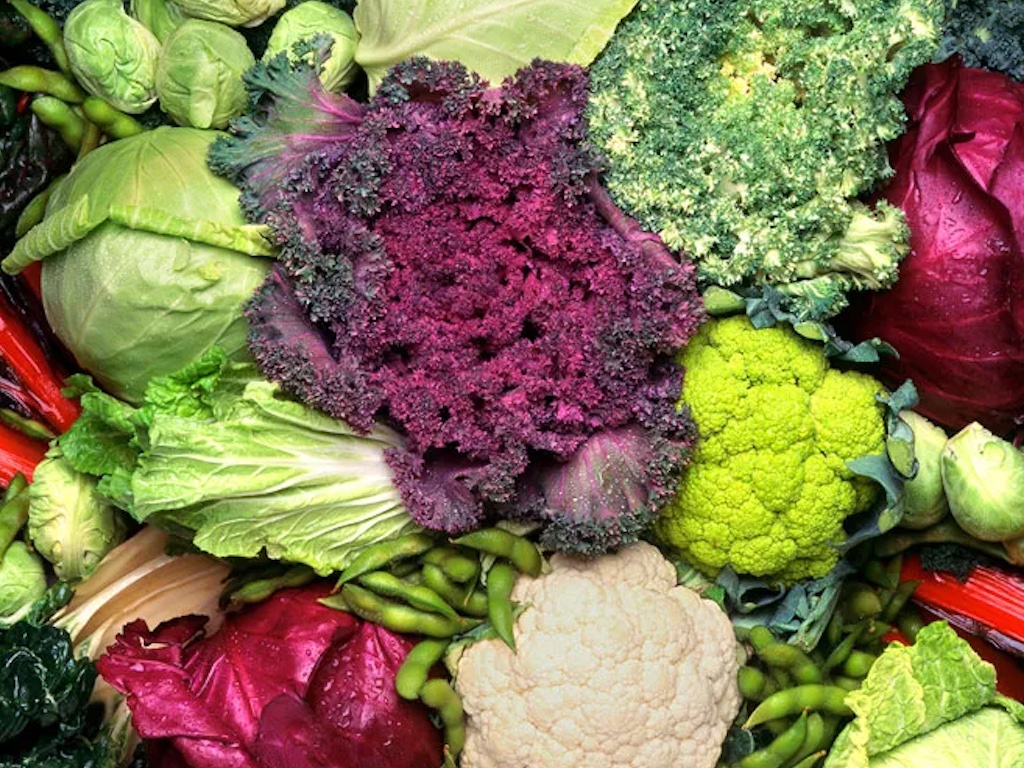20 Foods and Factors That Worsen IBS Symptoms
20 Foods and Factors That Worsen IBS Symptoms
Irritable bowel syndrome (IBS) is a medical condition that provokes digestive discomfort. IBS symptoms differ across individuals, but most sufferers find that certain foods trigger bloating and cramping. Healthcare professionals usually advise those with IBS to consume more soluble fiber and less insoluble fiber. Although trigger foods differ among individuals, a common list of potential culprits frequently aggravate these distressing symptoms.
Fried foods

Fried foods can distress anyone's digestive system, particularly those with IBS. The high-fat content in fried foods is usually the problem, and items like french fries and chicken fingers should be limited or avoided. Baked versions of these fast-food favorites can help satisfy cravings.
Dairy

Dairy discomfort is common, not just among IBS sufferers. Lactose intolerance and IBS symptoms can be indistinguishable, leading to confusion between the two conditions. High-fat dairy products, like milk, can instigate diarrhea and other IBS symptoms. Dairy alternatives like almond, coconut, and hemp milk can be used in many recipes.
Fatty foods

Eating fats stimulates the digestive system. Unfortunately, overconsumption can lead to cramping, bloating, constipation, and diarrhea in IBS sufferers. Avoid fatty meats to prevent these uncomfortable outcomes.
Red meat

Red meats, such as ground beef, hamburgers, hot dogs, steaks, roast beef, ham, bacon, and salami, can trigger IBS symptoms like gas, bloating, nausea, and constipation. These products are low in fiber and water, which can cause colon contractions and spasms. Processed meats also contain additives and nitrates that can irritate sensitive guts. Poultry and fish are leaner alternatives that are generally better tolerated.
Wheat and gluten

Gluten intolerance isn't exclusive to Celiac disease sufferers. Many people find gluten, a protein found in various grains, hard to digest. Though IBS and Celiac disease can be mistaken for each other, the symptoms caused by the former are unrelated to the autoimmune system. Gluten-free options are widely available today, despite the need for careful label reading.
CHECK CALORIECaffeinated drinks

Caffeine, a known gastrointestinal stimulant, should be avoided by those prone to IBS symptoms like diarrhea. Drinks like coffee, soda, and black or green tea contain enough caffeine to quickly irritate the digestive system. While caffeine has health benefits, IBS sufferers should seek alternatives. Carbonated drinks can also cause gas and bloating.
Chocolate

Despite its numerous health benefits, chocolate can trigger painful IBS symptoms and conditions like migraines. Consuming large amounts can disrupt the digestive system. Milk chocolate, which contains cocoa butter and sugar, is usually more problematic than dark chocolate.
CHECK CALORIEAlcohol

Alcohol stimulates the gut, causing bloating, gas, distention, and discomfort. Soda-based cocktails can worsen these symptoms due to the added carbonation. Beer, which combines alcohol with carbonation and gluten, could be the worst option. People with IBS should consume alcohol moderately and may occasionally enjoy distilled alcohol such as gin, vodka, scotch, whiskey, and rye, and wine.
Beans

Beans are an excellent source of plant-based protein. However, they can cause bloating, gas, and cramping in those with digestive complaints. Soaking beans overnight or cooking them in pressure cookers can help remove the compounds that cause gas. However, it is advisable to limit or avoid consumption of soy, black, fava, kidney, and navy beans, as they contain high levels of fructans, a compound known to induce severe bloating.
CHECK CALORIECruciferous vegetables

Broccoli, cauliflower, cabbage, kale, and Brussel sprouts can cause gas and bloating, especially when consumed raw. These vegetables are high in sulfur and produce hydrogen sulfide when broken down in the colon. They also contain a compound called raffinose, which humans cannot break down, leading to bloating and gas when it reaches the colon.
Stress and anxiety

There's substantial evidence that stress can trigger IBS symptoms. Stress and anxiety disorders often coexist with IBS, suggesting a deeper connection.
Certain drugs

Certain medications and drugs may elevate the risk of IBS onset and exacerbate existing symptoms. This encompasses some antibiotics and, predictably, medications that induce diarrhea or similar digestive disturbances.
Menstruation

Research indicates that IBS symptom severity often fluctuates with the menstrual cycle, suggesting hormonal influences. The menstrual cycle can also cause discomfort and stress, potentially exacerbating IBS symptoms.
Food temperature

Ancient beliefs about food temperature's effects on the body have been confirmed by modern research. Consuming extremely hot food or drinks can increase cancer risk and upset the stomach.
Lack of exercise

A sedentary lifestyle could also trigger an IBS flare-up. Many people with IBS increase their fiber intake to improve their condition. However, a lack of exercise slows food and waste movement through the gut, potentially worsening IBS symptoms.
Too little sleep

Sleep disturbances are common among people with IBS due to stomach pain or frequent bowel movements. However, research suggests a more complex connection between sleep and IBS.
High-FODMAP foods

FODMAPs (Fermentable Oligosaccharides, Disaccharides, Monosaccharides, and Polyols) are a group of fermentable short-chain carbohydrates found in various foods. Poor absorption of FODMAPs in the small intestine can trigger symptoms like abdominal pain, gas, and diarrhea in some individuals with IBS. A low-FODMAP diet, under professional guidance, can help manage IBS symptoms.
Articial sweeteners

Artificial sweeteners, such as sorbitol, mannitol, and xylitol, found in sugar-free products can lead to digestive issues in individuals with IBS. They can ferment in the gut and alter the gut microbiome, causing gas, bloating, and diarrhea. IBS sufferers should check product labels and choose products without these sweeteners.
Spicy foods

Spicy foods, typically seasoned with ingredients such as chili peppers and hot spices, can trigger IBS symptoms. The capsaicin present in these foods can irritate the digestive tract, resulting in abdominal discomfort, gas, and diarrhea. If you have a penchant for spicy tastes, it might be worthwhile to consider milder alternatives or experiment with herbs and spices that are less harsh on the stomach.
Citrus fruits

Citrus fruits such as oranges, grapefruits, and lemons are acidic in nature and can be tough on the digestive system, potentially causing acid reflux, heartburn, and discomfort in individuals with IBS. Despite their high vitamin C content, those with IBS might want to seek alternative sources of this crucial nutrient. Strawberries and kiwis, for instance, are often more stomach-friendly options.


